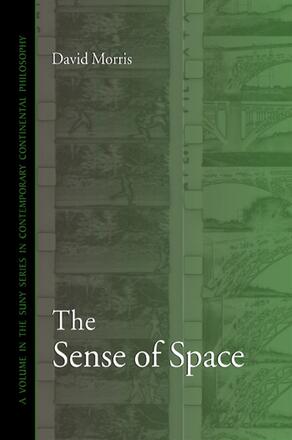
The Sense of Space
Alternative formats available from:
A phenomenological account of spatial perception in relation to the lived body.
Description
The Sense of Space brings together space and body to show that space is a plastic environment, charged with meaning, that reflects the distinctive character of human embodiment in the full range of its moving, perceptual, emotional, expressive, developmental, and social capacities. Drawing on the philosophies of Merleau-Ponty and Bergson, as well as contemporary psychology to develop a renewed account of the moving, perceiving body, the book suggests that our sense of space ultimately reflects our ethical relations to other people and to the places we inhabit.
David Morris is Associate Professor of Philosophy at Trent University.
Reviews
"What Morris has produced is a subtle retelling of Merleau-Ponty's phenomenological story, one that in emphasizing the role of movement in the development and expression of the 'body schema [schéma corporeal],' leads us even more emphatically to ethical questions." — Research in Phenomenology
"Morris's book is an invigorating, subtle, and suggestive account of spatial perception … the issues raised by his book are rich and complex and fully worth chewing over." — Dialogue
"Faithful to the tradition in which he situates himself, Morris makes skillful use of phenomenological examples to support and clarify his theoretical suggestions … The Sense of Space is a highly successful, informative, and insightful engagement with some of recent European thought's most significant influences and its correlative dedication to a genuine thinking of immanence." — Journal of the British Society for Phenomenology
"In his investigation of the sense of space, Morris not only makes a significant contribution to the development of the phenomenological inquiry into the body of which Merleau-Ponty is one of the pioneers, but the particular modes of argument he deploys, as well as the conclusions for which he argues, have a significance that goes beyond merely the philosophy of the body as such." — Phenomenology and the Cognitive Sciences
"Morris compellingly assumes the style of the Phenomenology, employing vivid experiential descriptions and scientific case studies while, like the later Merleau-Ponty, driving these phenomenological investigations to fruition in a primordial ontology of chiasmic reversibility that precedes and grounds subjective experience … [the book] is written in expressive yet technical prose … [and] is an invigorating alternative to scientific and traditional explanations of spatiality. His thesis binds together traditionally isolated questions, placing expression, emotion, and ethics in the very depths in which we dwell." — Symposium
"Readers interested in embodiment should find the book interesting." — University of Toronto Quarterly
"I like the combination of sober scholarship with imaginative thought and writing. David Morris is fully at home in phenomenology, while being quite knowledgeable of existing and pertinent scientific literature. Having mastered both, he creates a dynamic tension between them, showing how each can fructify the other, albeit in very different ways. The result is truly impressive.
"This is a very rare book in many ways. First, it directly engages scientific literature that treats the experience of space; not since Merleau-Ponty himself has there been a comparable engagement. Second, it institutes a lively debate with this literature that shows how a different model from that of science—including ecological science as practiced by J. J. Gibson and dynamics systems theory—is required in order to avoid positing a ready-made world taken for granted, or else an infinite regress of models. Third, Morris draws in everyday experiences of space and place in order to elucidate the deep problem of depth—a problem that heretofore has not been elucidated so intelligently and imaginatively resolved. Fourth, he adopts a developmental perspective on perception and motion that makes his work virtually unique and that brings additional light to bear on the question of depth. Fifth, Morris explores the implications of his model of depth for the experience of place in human experience—a bold undertaking that succeeds remarkably well. In sum, this is a groundbreaking work." — Edward S. Casey, author of Imagining: A Phenomenological Study, Second Edition